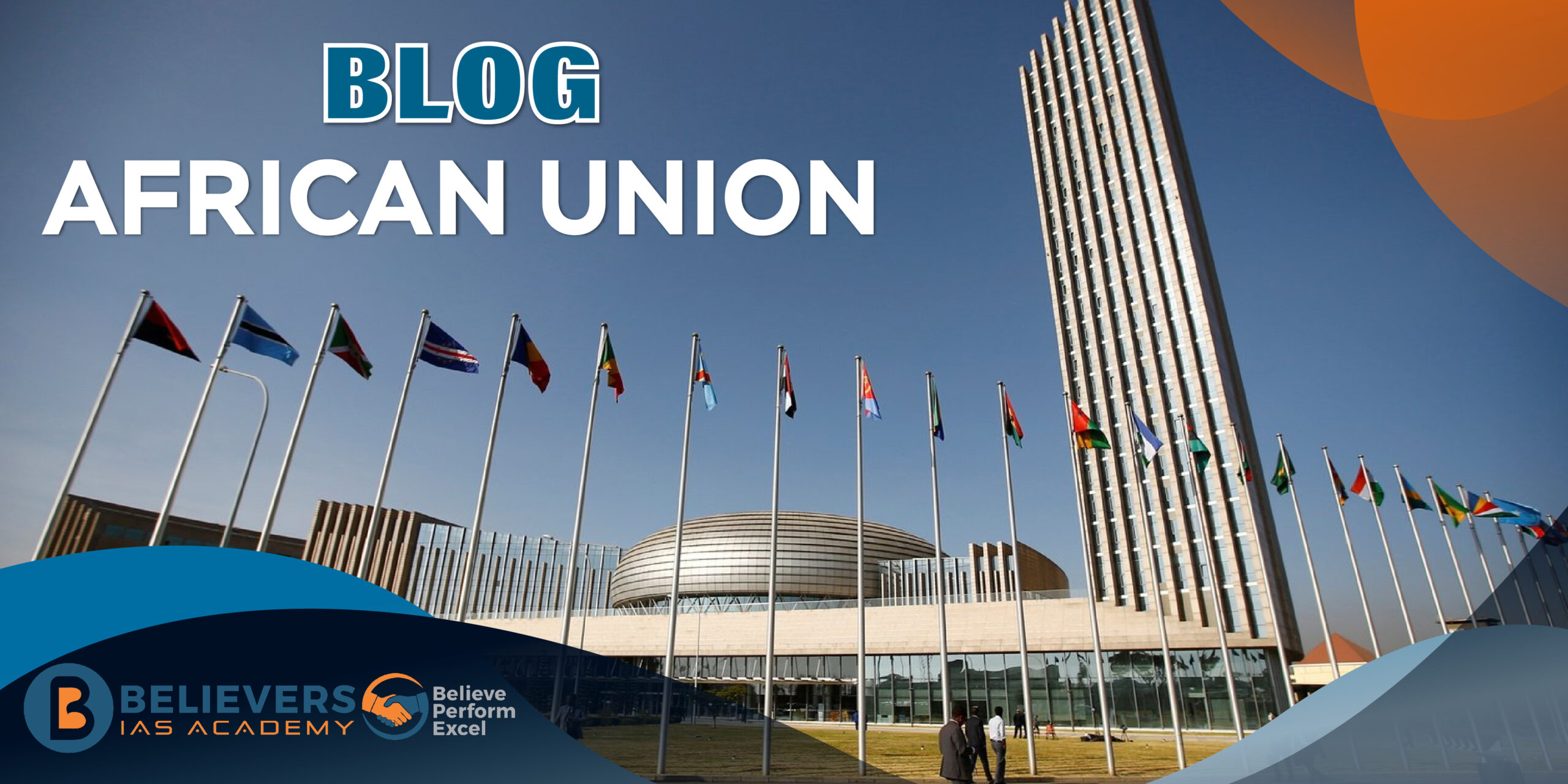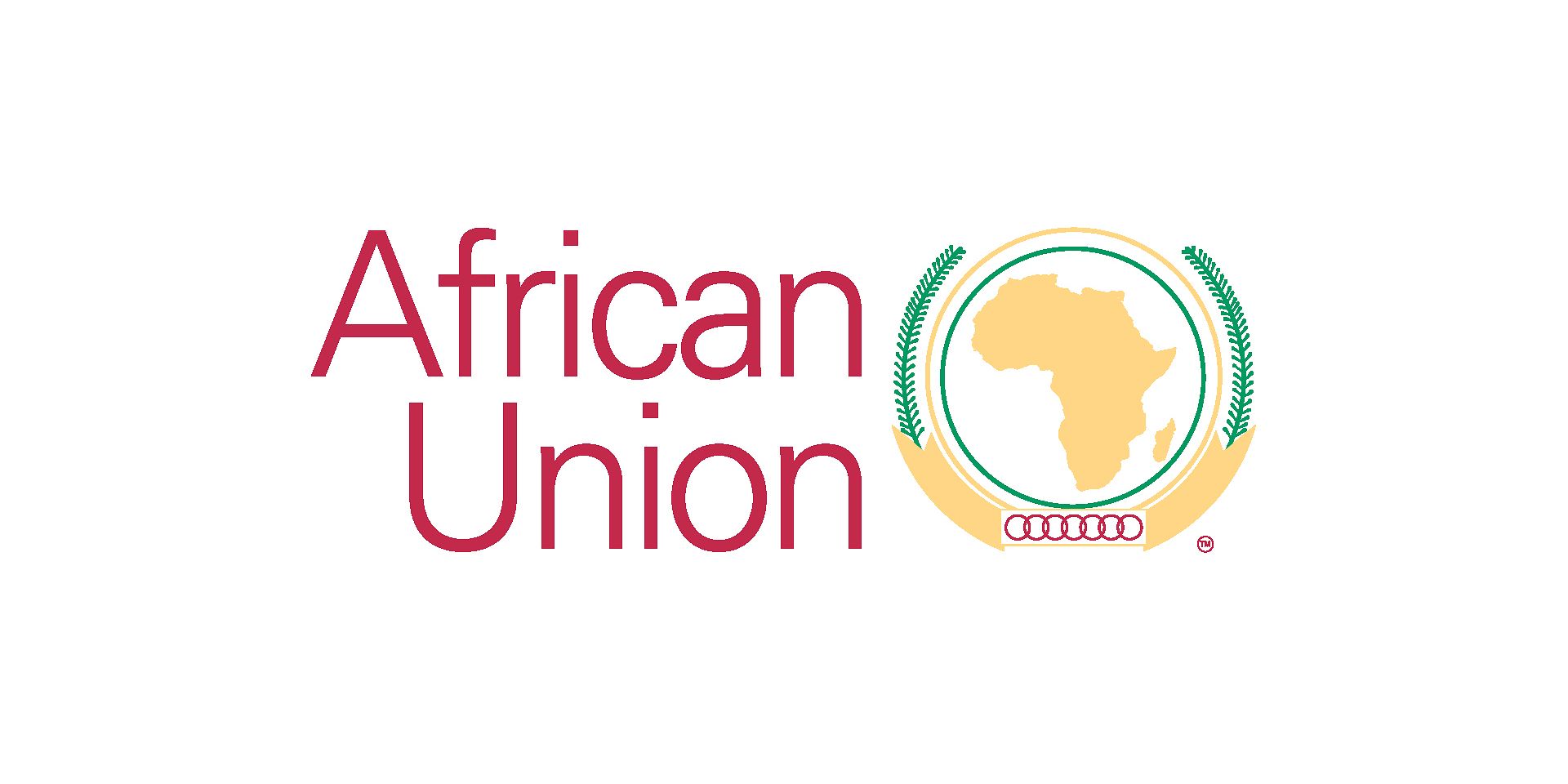African Union
African Union is known as AU. It is a continental association with 55 African member states. The Organisation of African Unity (OAU), which operated from 1963 to 1999, was succeeded by the African Union, which was formally established in 2002. The main goals of the AU are to solve the myriad political, economic, social, and security issues that the continent is currently confronting as well as to encourage unity, collaboration, and progress among African nations.
Which are the countries involved as Members of the African Union?
- Eastern Africa
Comoros, Djibouti, Eritrea, Ethiopia, Kenya, Madagascar, Mauritius, Rwanda, Seychelles, Somalia, Sudan, Tanzania, and Uganda
- Southern Africa
Angola, Botswana, Lesotho, Malawi, Mozambique, Namibia, South Africa, Swaziland, Zambia, and Zimbabwe
- Other member states
Libya, Morocco, Tunisia, Ghana, Guinea, Benin, Burkina Faso, Cameroon, Central African Republic, Chad, Congo, Cote d’Ivoire, Democratic Republic of Congo, Gabon, Niger, Somalia, Togo, Mali, Senegal, Nigeria, Sierra Leone, Mauritania, Tanzania, Burundi, Rwanda, Algeria, and Uganda
What is the historical background behind the African Union?
- Colonialism and Independence Movements: During the late 19th and early 20th centuries, European nations conquered a large portion of Africa. Through several conflicts and movements, African countries had started to achieve independence by the middle of the 20th century. The longing for independence from colonial authority and the aspiration for self-determination were commonalities across these newly sovereign governments.
- Organization of African Unity (OAU): The Organisation of African Unity (OAU) was founded in May 1963 in Addis Abeba, Ethiopia, by the leaders of 32 newly independent African nations. The OAU sought to strengthen inter-African harmony and cooperation, uphold national sovereignty, end colonialism, and advance international cooperation. The tenets of Pan-Africanism, which emphasized African unity and independence, served as the foundation for the OAU.
- Challenges and Limitations of the OAU: Although the OAU was crucial in assisting African nations in their quest for independence and in giving them a forum to coordinate their stances on global issues, it had its drawbacks. The OAU frequently struggled to resolve internal disputes, advance economic growth, and adapt to shifting international political realities.
- The Transition to the African Union: By the late 20th century, African leaders had realized that the OAU needed to change to more effectively handle the problems facing the continent. African heads of state released the Sirte Declaration in 1999, during a conference in Sirte, Libya, asking for the creation of the African Union. This signalled a dramatic shift in emphasis from anti-apartheid and colonial campaigns to a larger agenda that included economic integration, peace, and security, as well as development.
- Launch of the AU: The African Union (AU) was formally established in July 2002 in Durban, South Africa, as a result of the OAU’s determination to establish a new continental organization that would build on its achievements. The AU’s goals were specified in its Constitutive Act, and they included supporting peace and stability, advancing political and socioeconomic integration, and safeguarding human rights and sound governance.
- Agenda 2063: The AU adopted Agenda 2063, a strategy framework aiming at attaining an integrated, wealthy, and peaceful Africa, to direct its long-term development and transformation. This agenda describes the hopes and objectives of the continent for the twenty-first century and places a strong emphasis on independence, unity, and sustainable development.
What are the primary aims and objectives of the African Union?
- Promote Unity and Solidarity: The African Union seeks to foster harmony and cooperation among the continent’s nations and people. It aims to promote a sense of shared identity and mission among African countries.
- Defend Sovereignty: The AU is dedicated to upholding the independence, territorial integrity, and sovereignty of each of its member nations. It opposes interfering in the domestic affairs of member nations in any way.
- Increase Integration: The African Union (AU) wants to increase political and socioeconomic integration on the continent of Africa. This includes projects like the African Continental Free Trade Area (AfCFTA) that aim to unify the African market.
- Promote Common Stances: In international forums and discussions, the AU seeks to advance and defend African common stances on topics of concern to the continent and its people. This strengthens Africa’s voice on the international scene.
- Encourage worldwide collaboration: The AU promotes worldwide collaboration while giving due consideration to the tenets of the United Nations and the Universal Declaration of Human Rights.
- Promote Security and Peace: The AU is committed to fostering stability, security, and peace across the continent. It is essential to African peacekeeping and conflict resolution efforts.
- Promote Democratic Principles: The AU works to advance and strengthen democratic institutions, principles, and practices, as well as citizen involvement and effective leadership in its member nations. It works to strengthen democratic practices while monitoring elections.
- Protect Human and Peoples’ Rights: Per the African Charter on Human and Peoples’ Rights and other pertinent human rights documents, the AU is dedicated to promoting and protecting human and people’s rights.
- Increasing Global Influence: The AU seeks to provide the conditions necessary for Africa to take its proper place in the world economic system and in talks. It aims to improve Africa’s standing in international affairs.
What is Agenda 2063?
Agenda 2063 is a strategic framework and long-term development strategy for the African continent. With 2063 as the target year, it was endorsed by the African Union (AU) in 2013 and describes the aspirations, objectives, and plans for Africa’s development during the ensuing 50 years. The goal of this ambitious and far-sighted agenda is to direct the political, socioeconomic, and environmental challenges facing Africa.
What are the challenges faced by the African Union?
- Conflict and Instability: Political instability, civil wars, and conflicts continue to plague different parts of Africa. The recurrence of recurrent crises undermines the AU’s attempts to manage, avert, and end wars.
- Security and peacekeeping: The AU is involved in several peacekeeping missions around the continent, but due to resource shortages, logistical issues, and the dynamic nature of wars, peacekeeping operations are challenging to maintain.
- Political Governance: In many African nations, ensuring sound political leadership, democracy, and the rule of law continues to be difficult. Progress in these areas is hampered by political instability, corruption, and poor institutions.
- Economic development: Despite advancements, many African nations still struggle with issues including high unemployment, extreme poverty, and inequality. It is a constant battle to achieve sustainable economic growth and diversity.
- Infrastructure Deficits: Efforts to promote economic development and regional integration continue to be hampered by infrastructure shortages in the areas of transportation, energy, and ICT.
- Pandemics and healthcare: The continent suffers problems with healthcare, including insufficient infrastructure and resources. The COVID-19 pandemic made clear the need for better healthcare infrastructure and readiness.
What are the recent developments in the case of AU?
- At the 18th G20 summit in New Delhi, the G20 is anticipated to announce its decision to award the AU permanent membership. The world’s richest and most powerful nations make up the G20.
- The AU’s membership in the G20 is part of India’s commitment to be the voice of the Global South. In June, Indian Prime Minister Narendra Modi suggested joining the AU.
What are the advantages for the African Union in the G20 summit?
- Economic Influence: The combined GDP and commerce of the G20 countries account for a sizeable percentage of the global economy. A nation or regional entity can influence international economic policies and projects by joining the G20.
- Coordination of policies: G20 gatherings offer member nations a forum for discussing and coordinating economic strategies. This can be especially useful when dealing with national or international economic problems.
- Access to Resources: Participating in the G20 can make it easier to acquire financial resources, such as money for important projects, investments, and development aid. It can also draw FDI from abroad and encourage economic expansion.
- Networking and diplomacy: Being a member of the G20 permits a nation to take part in high-level economic and diplomatic negotiations with other significant economies. This could improve alliances, trade connections, and diplomatic relations.
- Global Governance: Aside from the economy, the G20 meetings also address a wide range of international topics, such as security, health crises, and climate change. Participation in these debates can influence how important decisions are made about global governance.
- Influence on International Agendas: G20 members have the chance to influence international affairs and promote their interests. For nations or regional organizations looking to pursue particular policy goals, this can be crucial information.





